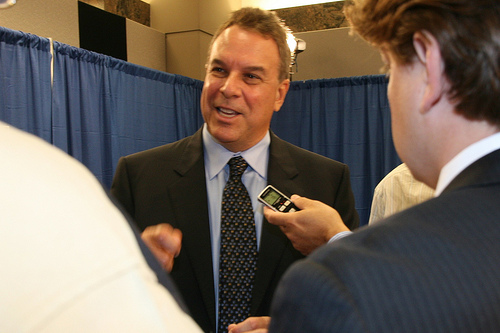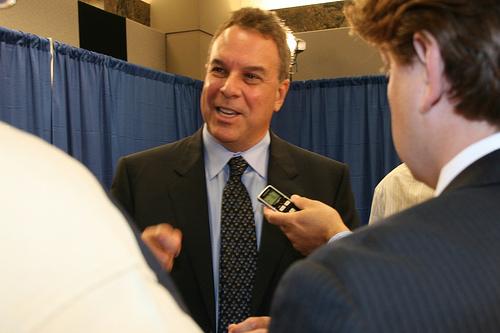
Flickr/<a href="http://www.flickr.com/photos/49524453@N05/4812880170/">Greene4Florida</a>
In an election year marked by the rise of the self-funded candidate, here’s a memo to the politicos out there: Splashing your own cash to win over voters is, according to a new study, a potentially dumb investment. Quite dumb, in fact. The National Institute on Money in State Politics studied more than 6,000 state races in which various candidates or their immediate families spent a whopping $700.6 million to boost their own campaigns. But did that spending translate into success? Not really: A measly 11 percent of those self-funded candidates won.
That low rate is a good thing, right? Well, kind of. Here’s Sam Pizzigati from the Working Group on Extreme Inequality:
So can we breathe a sigh of relief, secure in the knowledge that the rich can’t buy their way into political power? We might want to put a hold on that sigh. Money still matters.
Those candidates whose campaigns spend the most turn out to win the most, the National Institute study also found, by a wide margin. Candidates who collected and spent more campaign cash than their rivals, says the study, won 87 percent of their races.
There’s a key distinction here. Modest levels of self-funding—donating a few hundred or thousand dollars to your campaign—doesn’t look like it makes much of a difference, especially in smaller state races where budgets are puny compared to, say, the millions spent running for the US House or Senate.
But then you have self-funded candidates—who, ironically, are self-styled as “populists” and “outsiders”—like Florida Senate candidate Jeff Greene, Connecticut Senate hopeful Linda McMahon, and California gubernatorial frontrunner Meg Whitman, who together have spent well over $100 million on their campaigns. That kind of cash, the study shows, brings a major chance of success, given that kind of candidate’s near-limitless ability to cut ads, publish campaign lit, travel throughout their states, and so on. After all, look at those three candidates’ poll numbers, which continue to climb and climb.
The state representative, in other words, who chips in part of his paycheck to hand out lawn signs might be wasting his money. But the real-estate mogul who spends more on his campaign than most people earn in their lifetime shouldn’t have a problem buying a seat in the US Senate.














